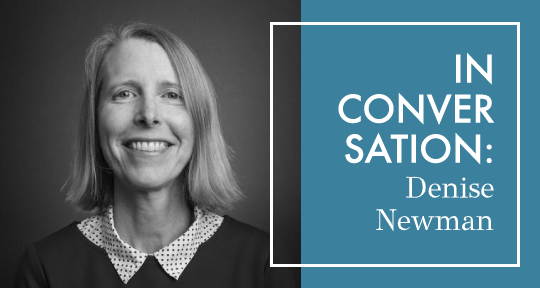Denise Newman is a poet and translator based in San Francisco. She has published four collections of poetry, and translated two novels by Inger Christensen from the Danish—The Painted Room and Azorno—as well as the short story collection, Baboon, by Naja Marie Aidt, which won the 2015 PEN Translation Prize, and most recently, Aidt’s memoir, When Death Takes Something From You Give It Back: Carl’s Book. The memoir, a semi-finalist for the National Book Awards and a finalist for the 2019 Kirkus Prize, is saturated with the trauma experienced by a mother grieving her son. Nataliya Deleva recently spoke with Newman about her approach to translating this deeply personal narrative across various cultural contexts, her proximity to the text and its author, and the role of rhythm in conveying silence on the page.
Nataliya Deleva (ND): Translating is often co-creating, as it is not only the words and sentences of a text being translated, but also their meaning in a different cultural context. How did you find this process, considering this book is so painfully personal? Is grief universal?
Denise Newman (DN): Yes, the translation process touches on the mystery of language. I’ve often marveled at how translations of Bashō’s haikus seem to connect me directly to the moment of his observation. It doesn’t matter that the poem has traveled centuries, oceans, and languages. Maybe this is mostly possible when something is experienced and communicated directly, without any interference—then the original energy, which is outside the conditions of ordinary time and space, stays vital. I think this is what makes translating compelling; you have to go so deeply into a text that you depart from linear time and space. Working on Aidt’s book was hard, though, because of my own interference. She’s my friend, and my sorrow and concern for her sometimes got in the way, particularly while working on the passages that describe the last hours of Carl’s life. Her writing in this part is so direct, I felt as though I were actually present in the nightmare, and often needed to take breaks to clear my head. To get back to your question, I think all emotions are universal; we sense this when they are expressed directly, without any interference, as Aidt is able to do. Translating requires the ability to access those original emotions; they are what electrifies the language.



